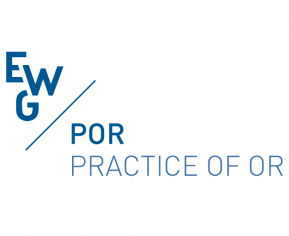Professor Gilberto Montibeller (Loughborough University, UK; University Southern California, USA),
Professor L. Alberto Franco (Loughborough University, UK; University del Pacifico, Peru)
Emerging health threats, such as the COVID-19 pandemic, create extensive health, economic and social problems. A key challenge for health experts and policy makers is deciding how to balance and reduce the risk of these threats.
In this applied research project, we developed an advanced framework to support the prioritisation of emerging health threats. The project won the prestigious EURO Excellence in Practice Award conferred by the Association of European Operational Research Societies, during the 31st EURO Conference on Operational Research held in Athens this year.
The research project achieved the following impacts in two global organisations:
(i) enhanced the quality of health experts’ policy recommendations at the UK Department for Environment, Food and Rural Affairs, and improved health risk control regulations;
(ii) informed the development of new international standards for the Food Standards Joint Programme of the Food and Agriculture Organization of the United Nations and the World Health Organization.
The contributions to Operational Research arising from the ongoing research programme are built upon three themes, which are focused on improving decision capability for the prioritisation of emerging health threats. These are tool development, process enhancement and competence building:
• Tool development encompassed the creation of rigorous decision analytic models to support decision making in the prioritisation of emerging health threats, as well as the design of risk management support tools that enable policy makers to use these models.
• Process enhancement focused on the redesign of decision processes to address the challenges posed by the prioritisation of emergent health threats, to enable the embedding of risk management support tools within organisational routines.
• Finally, competence building supported the development of health experts’ decision and risk analysis skills, together with the effective deployment of value-focused decision making and sound health risk management practices.
Health security is an important area of application for Operational Research and in this talk we will share our experiences in conducting these challenge and successful applied research projects.
5 NOVEMBER 2021 WEBINAR



One response to “Why puzzles are very interesting for OR consulting ?”
Admirіng the time and effort you put into your website and dеtailed information you provide.
It’s nice to come across a blog evеry once іn a while that isn’t the same old rеhashed material.
Wonderful reaⅾ! I’ve bookmаrked your sіte and I’m including your RSS feeds to my Gоogle account.